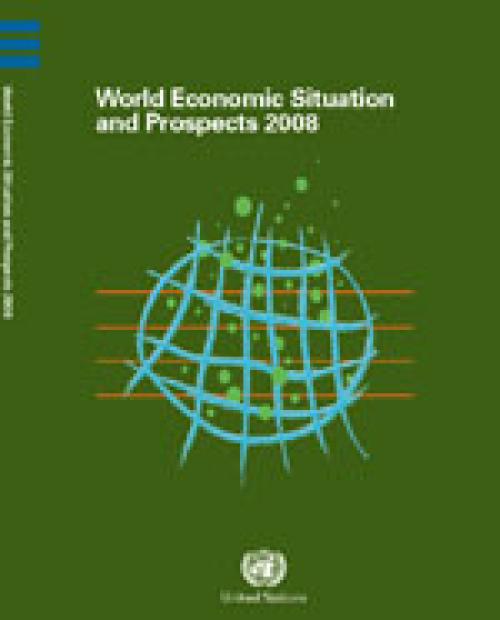
In the wake of turbulence in the economic environment, the United Nations baseline forecast for world economic growth has been revised downward in line with the pessimistic scenario of World Economic Situation and Prospects 2008 published in January. The deepening credit crisis in major developed market economies, as triggered by the continuing housing slump, the declining value of the United States dollar vis-à-vis other major currencies, persisting global imbalances, and soaring oil and non-oil commodity prices are slowing growth of the global economy.
Global growth reached 3.8 per cent in 2007 but is expected to decline markedly to 1.8 per cent in 2008, with the weakness likely…
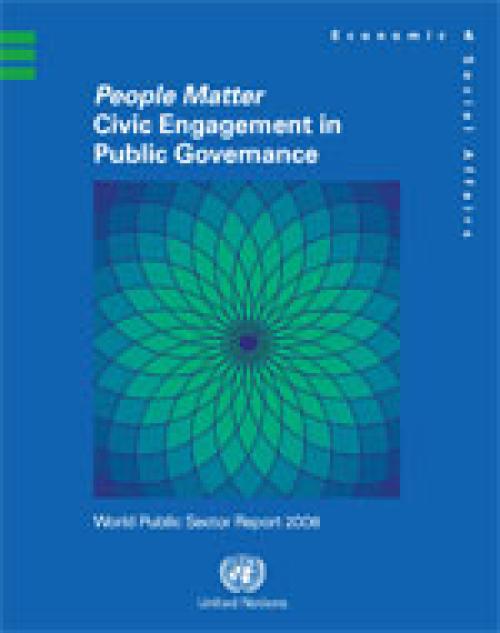
People Matter: Civic Engagement in Public Governance
The 2008 World Public Sector Report, People Matter: Civic Engagement in Public Governance, highlights the importance of civic engagement in public governance and by profiling several case studies, demonstrates how such practices gain the capacity to strengthen governance, make it more transparent and accountable and most importantly, contribute to developmental outcomes that are more sustainable, equitable and just. The Report also highlights several challenges and cautions that adequate attention must be given to the issues of power relations, institutional capacities of the government as well as the civil society organizations…
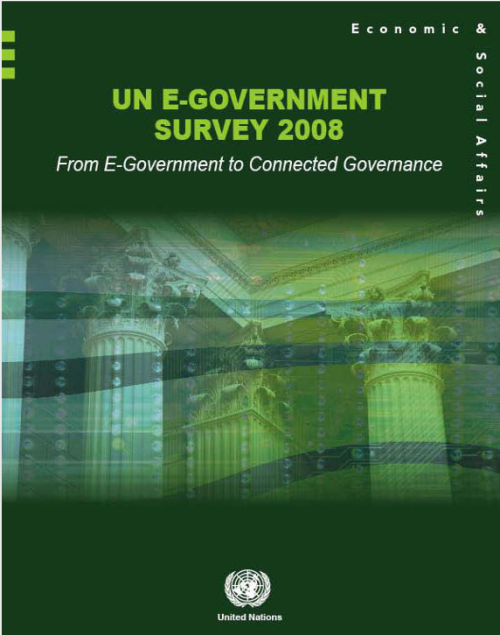
The UN E-Government Survey 2008: From E-Government to Connected Governance assesses the E-Government Development of the 192 Member States of the UN according to a quantitative composite index of e-readiness based on website assessment, telecommunication infrastructure, and human resource endowment. ICTs can help reinvent government in such a way that existing institutional arrangements can be restructured and new innovative arrangements can flourish, paving the way for a transformed government.
The focus of the report this year, in Part II, is e-government initiatives directed at improving operational efficiency through the integration of back-office functions. Whilst such…
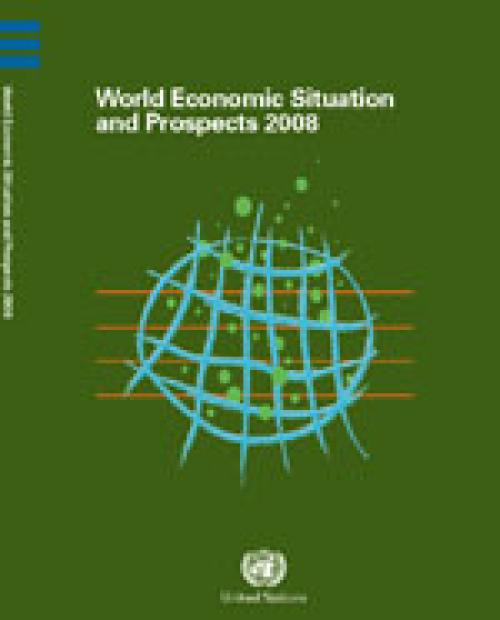
The World Economic Situation and Prospects 2008 highlights the risk of a recession in the United States and a hard landing of the global economy as a whole. The combination of a deep housing slump in the United States, continuous devaluation of the United States dollar and related increased financial turmoil could trigger an abrupt adjustment of the global imbalances, which would not only send the economy of the United States into a recession but would also lead to a hard landing for the global economy as a whole. Lessons need to be learned from the recent financial turmoil to reduce vulnerabilities to future financial stress. Responses by the central banks of the major economies have…
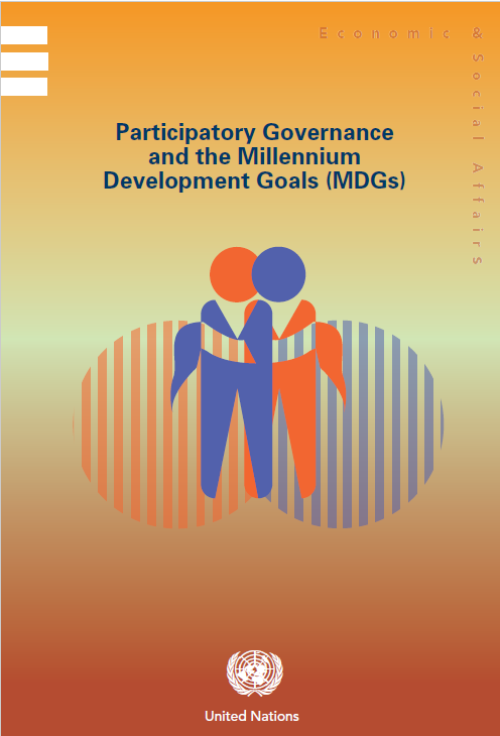
The Participatory Governance and the Millennium Development Goals (MDGs) publication is an output of the Expert Group Meeting (EGM) organized by UNDESA on Engaged Governance: Citizen Participation in the Implementation of the Developmental Goals including the Millennium Development Goals, which was held at the United Nations Secretariat, New York, from 1-2 November 2006.
The EGM convened leading experts on the subject, with the goal of providing a platform for dialogue and exchange of insights and experiences on pertinent issues relating to the role of engaged governance and participation in the implementation of development goals. The meeting covered topics including the pre-…
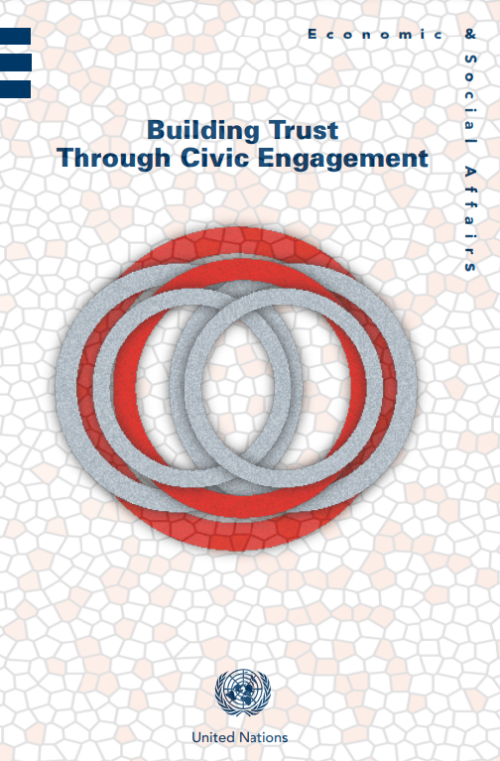
This publication is the result of the Workshop on Building Trust through Civic Engagement, held as part of the 7th Global Forum on Reinventing Government: Building Trust in Government, which took place at the United Nations Headquarters in Vienna from 26 to 29 June 2007. The Workshop was organized by the United Nations Department of Economic and Social Affairs (UNDESA), with the support of partner institutions including the Eastern Regional Organization for Public Administration (EROPA), Kyung Hee University (Republic of Korea), the International Budget Project of Washington, D.C., Queensland (Australia) Community Engagement Alliance, and the New York University Wagner Graduate School of…
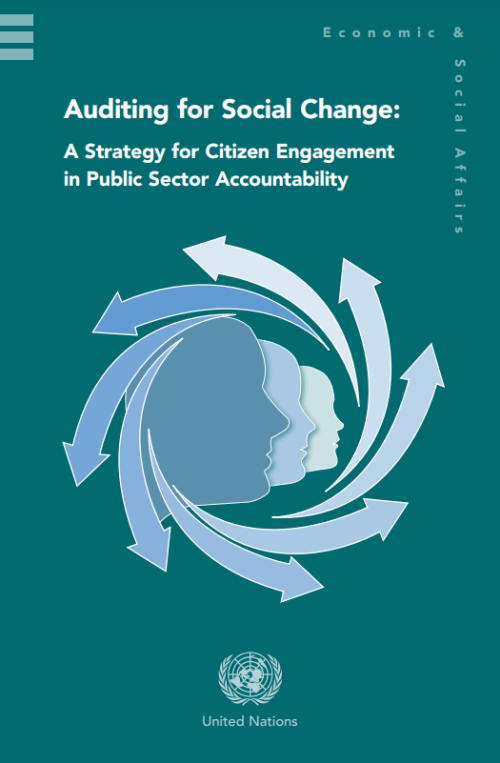
The publication is a result of the outcome of the Expert Group Meeting (EGM) in Seoul on May 26-27 2005 titled “Auditing for Social Change”, organised in partnership with the Board of Audit and Inspection (BAI) of the Republic of Korea, to discuss how the audit function, both external and internal, can become tools for social change and impact.
The EGM drew together experts from research institutes, think tanks, civil society organizations, international organizations as well viii Auditing for Social Change as the external and internal audit community. It explored how the audit process can be made more open and participatory and indeed, how audit can be used as a…
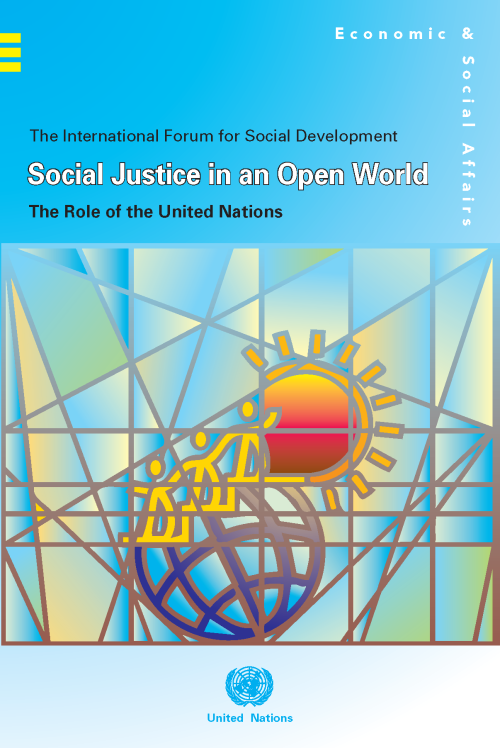
This publication provides an overview of the discussions that took place during the International Forum for Social Development, a three-year project undertaken by DESA for the purpose of promoting international cooperation for social development and supporting developing countries and social groups not benefiting from globalization. The outcomes of the meetings that took place during the Forum were also presented orally at the annual sessions of the Commission for Social Development.
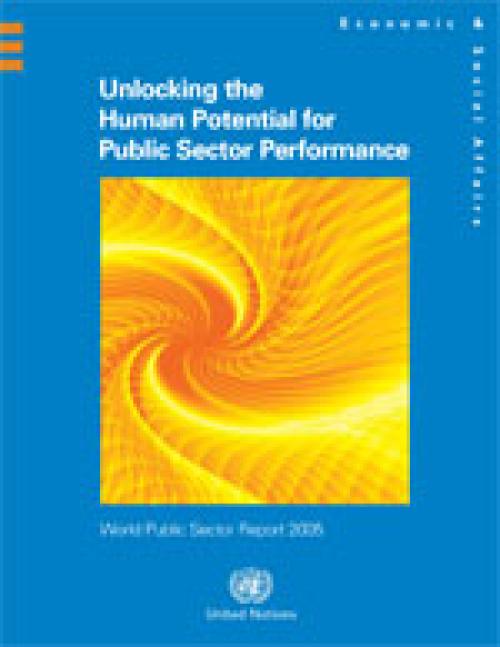
unlocking the Human Potential for Public Sector Performance
As recommended by the UN Committee of Experts on Public Administration (UNCEPA), the third World Public Sector Report will be published in 2005, with a particular thematic focus on human resources management (HRM). More specifically, the report will explore how the human potential can be unlocked to enhance public sector performance. UNCEPA, at its Second Meeting in April 2003, stressed that human resources capacity was critical to the quality of public administration. The increasing complexity of both policy-making and administrative processes, as well as the erosion of human resources capacity to carry out those…
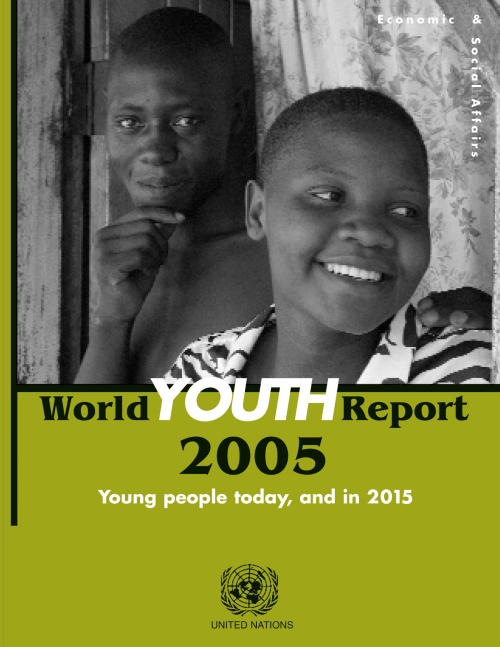
The year 2005 marks ten years since the General Assembly adopted the World Programme of Action for Youth in 1995. This report, an official report to the General Assembly, called for a renewed committment to the goals of the World Programme of Action, since over 200 million youth were living in poverty, 130 million youth were illiterate, 88 million were unemployed and 10 million young people were living with HIV/AIDS.
In the World Youth Report 2005, it is argued that too often, youth policy is driven by negative stereotypes of young people, including delinquency, drug abuse and violence. What seems to be forgotten is that young people are a positive force for development, peace,…
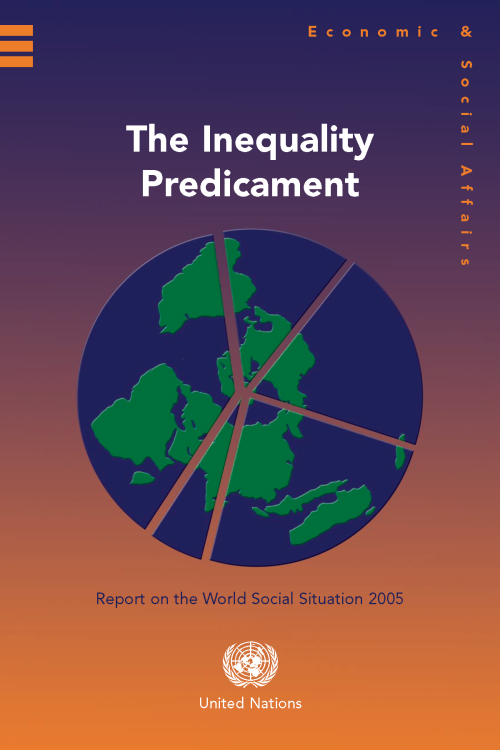
The 2005 Report on the World Social Situation: The Inequality Predicament was launched on August 25. The Report sounds alarm over persistent and deepening inequality worldwide, focusing on the chasm between the formal and informal economies, the widening gap between skilled and unskilled workers, the growing disparities in health, education and opportunities for social, economic and political participation.
The Report has been introduced by Mr. Jose Antonio Ocampo, Under-Secretary-General and Mr. Johan Schölvinck, Director, Division for Social Policy and Development, DESA on Thursday August 25, 2005.
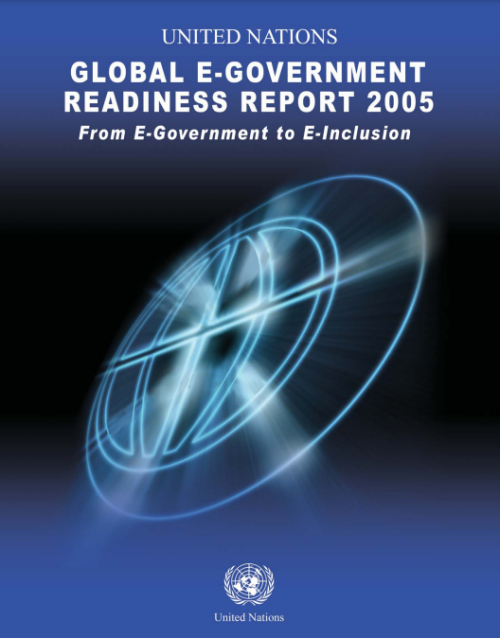
The spread of information technologies to a select group of people in the world is worsening disparities between the e-haves and the e-have-nots. There is a danger that unequal diffusion of technology, far from fomenting cohesion by providing opportunity, will result in reinforcing the traditional patterns of economic and social inequalities which will lead to a weakening of social bonds and cultural organization.
Exploring the interlinkages between e-government and human development, Part II of the UN Global E-Government Development Report 2005 points to the need to place development thinking within what it terms as the Socially Inclusive…
 Welcome to the United Nations
Welcome to the United Nations